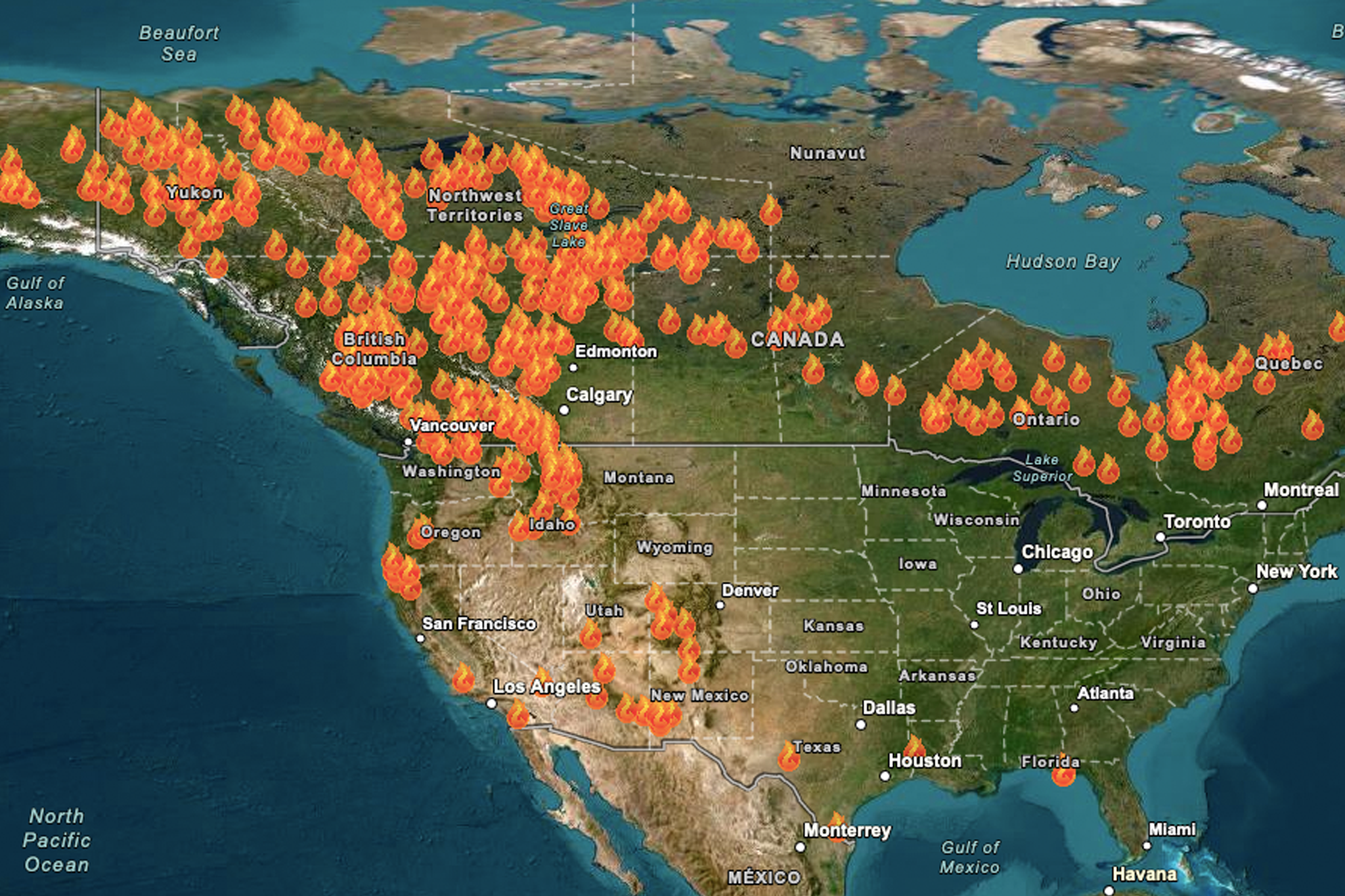Canada deploys military in fight against British Columbia wildfires as 35,000 evacuated
‘It is an extraordinarily serious situation,’ said Prime Minister Justin Trudeau
Your support helps us to tell the story
From reproductive rights to climate change to Big Tech, The Independent is on the ground when the story is developing. Whether it's investigating the financials of Elon Musk's pro-Trump PAC or producing our latest documentary, 'The A Word', which shines a light on the American women fighting for reproductive rights, we know how important it is to parse out the facts from the messaging.
At such a critical moment in US history, we need reporters on the ground. Your donation allows us to keep sending journalists to speak to both sides of the story.
The Independent is trusted by Americans across the entire political spectrum. And unlike many other quality news outlets, we choose not to lock Americans out of our reporting and analysis with paywalls. We believe quality journalism should be available to everyone, paid for by those who can afford it.
Your support makes all the difference.Canada is deploying its military to battle raging wildfires in British Columbia as more than 35,000 people were evacuated in the western province.
Some 1,038 fires were burning across Canada on Monday with more than half raging out of control. At least a third of those blazes had ignited in British Columbia which includes the major city of Vancouver and some of Canada’s most iconic landscapes.
“It is an extraordinarily serious situation,” said Canadian Prime Minister Justin Trudeau who added that troops would help with evacuations and other logistical tasks.
Mr Trudeau also confirmed that British Columbia’s request for federal assistance had been approved. “We’ll continue to be here with whatever support is needed,” he tweeted on Sunday.
In Yellowknife, capital of the Northwest Territories, nearly all of its 20,000 residents were forced to flee due to the extreme fires.
Yellowknife officials said they were creating wildfire defence lines around the city, using fire breaks, water sprinklers, cannons and aircraft dropping fire retardant, according to a Facebook post. A protective line of 15.5miles (25km) has been established.
Shane Thompson, Northwest Territories Environment Minister, said more than 19,000 people had left the remote city in less than 48 hours. About 15,000 went by road and 3,800 boarded flights out of the region.
“This is an amazing achievement to evacuate so many people safely,” he said, according to The Associated Press. Mr Thompson told the Real Talk podcast this weekend that Yellowknife could be fighting its fire for a year.
In some areas, there were signs of progress. West Kelowna Fire Chief Jason Broland told a news conference on Sunday there was “a bit of a glimmer of hope” in the Lake Okanagan region, a popular summer vacation spot.
“The weather has allowed us to make progress,” he said.

It has been an unprecedented summer of wildfires in Canada with a record 5,807 blazes this year so far, according to the Canadian Interagency Forest Fire Centre.
It has led to the destruction of tens of thousands of hectares, loss of homes, and hazardous levels of smoke which have billowed south into the United States.
The climate crisis, caused by the emissions from fossil fuels, is driving larger, more frequent and erratic wildfires around the world. Many countries are becoming hotter and drier, priming more of the landscape to burn.





